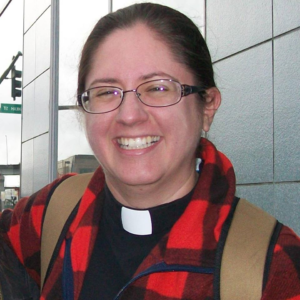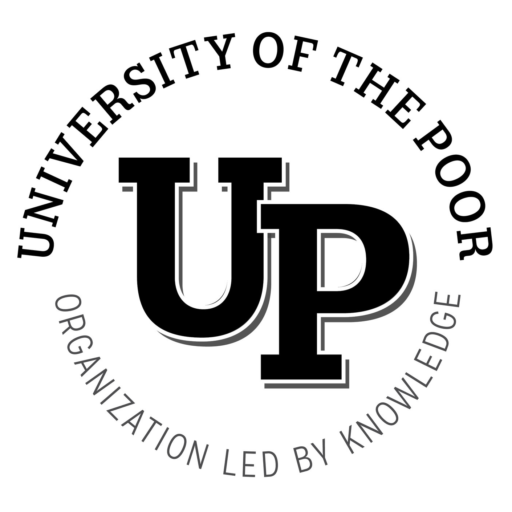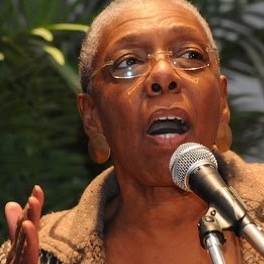By The Rev. Sarah Monroe, Chaplains on the Harbor

Gustavo Gutierrez, famed as the founder of liberation theology, believed that all theology must begin with praxis.[1] That is, theology should only be done from the ground up, starting from the experience of the poor. We cannot talk about God, truly, unless we listen to the voices of the poor and we cannot do theology except from the context of their experience.
I work in a specific context. I work in the rural United States, in Grays Harbor County in Washington State, where deindustrialization has fueled the rise of incarceration and homelessness. I work in a poor, rural, majority white community, surrounded by half a dozen sovereign Indian Nations. I work with homeless and incarcerated people in a town where 1 in 16 people are homeless, drug use is endemic, and nearly all my people have experienced incarceration. It is out of that context that I do theology. There are specific experiences that form that theology.
The experience of death and despair
We put up forty-five names in our All Saints service this year, the names of our dead over the past three or so years. Most of them died young—of suicide, of drug overdose, of lack of medical care, of exposure. As more and more people experience homelessness and poverty, our premature death rates are rising. Gutierrez commented that “the poverty that the poor suffer means death: a premature and unjust death.”[2]
From that experience comes a theological practice of naming our dead. Jon Sobrino, Salvadoran liberation theologian, wrote; “I usually add that the crucified people are also denied a chance to speak and even to be called by name, which means they are denied their own existence.”[3] The act of naming people, of holding funerals, of recognizing all of our dead as historical actors and human beings, is a revolutionary act. It is from that base that we build power among poor people in Grays Harbor.
The experience of homelessness and landlessness
Although we rarely acknowledge it, the imperial American concept of land use forms the basis of our social order and the injustice that it has produced. In her interesting, and sometimes problematic, commentary on the history of “white trash” in America, Isenburg writes; “From the beginning, colonizers denoted some people as entrepreneurial stewards of the exploitable land; they declared others (the vast majority) as mere occupiers, a people with no measurable investment in productivity or commerce.”[4]
For the indigenous people of this land, it meant the land was taken from them to be given to a colonizing power. For poor white people, it condemned us, in the words of Will Campbell, to spend generations “searching but never finding a secure life in a land of plenty.”[5]
Isenburg further commentates; “To be lower class in rural America was to be one of the landless… With no guarantee of social mobility, the only gift he received from his country was the liberty to keep moving.”[6]
Today, we see this played out in a mass crisis of homelessness, part of a larger global refugee crisis. I define homelessness, not simply as being without a home, but as a legal status: to be homeless is to have no legal right to space. It is ultimate landlessness. In my community, the city just bulldozed a large camp, where Native people who had treaty rights to camp along waterways and a bunch of poor white folks fought and lost their right to camp along the Chehalis River.
The Bible can be an excellent tool to argue that the earth was made by God to belong to us all. The practice of Jubilee, for example, insures that land is equally distributed. Isaiah rails against the landowners who “add house to house and join field to field till no space is left and you live alone in the land.”[7] Jesus demanded that rich landowners returned their profits to the people they stole them from—the poor.
And so we are left asking how poor communities can gain access to land—for housing, for food, for survival. Many communities have started community land trusts and housing trusts and groups like Cooperation Jackson are working on models of community land control and survival economies. I believe these efforts are the most important we can make in a world of epidemic displacement.
The experience of white power
While poor whites are generally less segregated than upper class whites, and more likely to intermarry, at least on the West Coast, it is still common for poor young white men to be recruited into white power gangs, especially if they end up in prison. For many, especially if they do not have a non-white gang affiliation or outside support, there can be little choice. For those poor whites not affiliated with white gangs, they are still barraged with alt-right messaging and outright fascism. As a side note, it is important to realize that the rise of white nationalism and the alt-right in its current form is particularly focused on the academy and professionals. Following the lead of authors like Charles Murray (The Bell Curve), they believe that a small group of wealthy, white males were destined to lead the world through superior intelligence and that poor people, including poor white people, are simply unintelligent and inferior. This belief that poverty is a result of moral failing is deeply imbedded in white supremacist culture and, because of that, there is a deep sense of shame among poor whites. Poor whites internalize this and often become the ideal foot soldiers of imperial projects, whether the genocide of indigenous people several generations ago or the persecution of non-white immigrant groups today. We still have not come to terms with our role in empire building and sit uneasily with that history.
Kali Akuno tells the left; “We must also build alliances with poor and working class whites. It is essential that we help to serve as an alternative (or at least a counterweight) to the reactionary and outright fascist socialization and influences the white working class is constantly bombarded with.”[8] As a chaplain, part of my work is to challenge the messaging of the alt-right and white power, while caring for and meeting the spiritual needs of suffering people. The language of the Poor People’s Campaign: a National Call for Moral Revival has been a useful tool for that, challenging poor whites to imagine what liberation might be possible if poor people of all races unite.
The experience of faith
The lived experience of my people is deeply grounded, not so much in Christianity, but in the land itself. Poor people in general, but especially on the West Coast, tend to deeply question organized religion. It has been a tool of shame and oppression for many of us, and young people particularly often distance themselves from Christianity. It is the place instead that forms our spirituality. For indigenous people in the region, the Shaker Church is one manifestation of indigenous faith and, after over a century of oppression and near cultural annihilation, Native young people are finding a home in their ancestral faith traditions. Poor whites, descendants of loggers and farmers and fisherfolk, also find their faith in the land that they now live on. They are also searching for and rediscovering the pre-Christian faiths of their past and look to Wicca or Asatru (Norse Heathenism) as a place to ground themselves.
Mark Taylor, writing on the prison system, points out; “The deep power of earth to rival state power is very much alive.”[9] If we are to truly do theology from the ground up, we must listen to the spiritual experiences of poor people, not always try to fit them into our own theological molds. I would suggest that the role of chaplain will become an important one, if we are to build a spiritual movement toward liberation among poor people. That is, it will be important to have people who are trained to be with people whatever their spiritual path, as supports and guides, without judgment. And it will be the role of grassroots theologians to listen to the link between land and faith among poor communities. Land is both the key to community liberation and control and the key to the spirituality developing for our time.
The experience of trauma
In the past several decades, the field of trauma psychology has become a powerful tool to reflect on human suffering and oppression. In my work, confronted with death and despair and harsh injustice, I am aware of how our communal trauma has shaped how we see the world and how we interact with it. Some scientists postulate that we carry both our trauma and our resilience in our DNA and that history is a heavy burden. For our indigenous people, it is a history of genocide. For poor whites, it is a long history of displacement and poverty: and a role in perpetuating trauma. In my community, this trauma drives high rates of addiction and self harm and leads to a desperate need for healing.
Ivan Petrella suggests; “Perhaps the
future of liberation theology lies beyond theology” and in other disciplines.[10] I would suggest one important discipline we should engage
is trauma psychology. We must find a way to speak our truths and heal our
wounds or we will self-destruct. Doing theology in this time and place means we
must seek healing if we are going to build leaders who will build a movement to
end poverty. We cannot lead from a place of raw pain; we must lead from
resilience and healing and we must invest, as a movement, in paths that support
recovery from trauma and addiction and pain.
[1] Gutierrez, Gustavo. A Theology of Liberation: History, Politics, and Salvation. Maryknoll: Orbis Books, 1988, page 9.
[2] Gutierrez, Gustavo. We Drink from our own Wells: The Spiritual Journey of a People. Maryknoll: Orbis Books, 2003, page 28.
[3] Sobrino, Jon. No Salvation Outside the Poor: Prophetic-Utopian Essays. Maryknoll: Orbis Books, 2008, page 4.
[4] Isenburg, Nancy. White Trash: The 400-Year Untold History of Class in America. Penguin Books, 2016, page 19.
[5] Campbell, Will. “Elvis Presley as Redneck” https://www.canopicjar.org/sharing-page/willelvis/ Aug 7, 1995, accessed 3 Dec 2018.
[6] Isenburg, page 107.
[7] Isaiah 5:8
[8]Akuno, Kali. “Until We Win: Black Labor and Liberation in the Disposable Era,” Why Don’t the Poor Rise Up?: Organizing the Twenty-First Century Resistance, eds. Ajamu Nangwaya and Michael Truscello. AK Press, 2017, page 69.
[9] Taylor, Mark Lewis. The Executed God: The Way of the Cross in Lockdown America. Minneapolis: Fortress Press, 2001, page 123.
[10] Petrella, Ivan. Beyond Liberation Theology: A Polemic. London: SCM Press, 2008, page 148.


